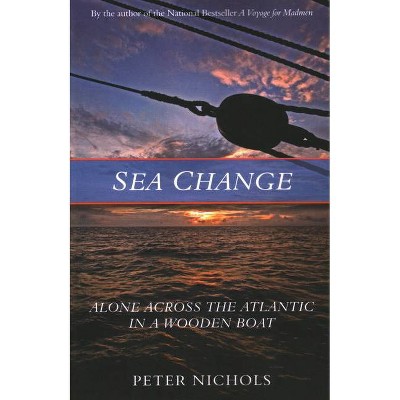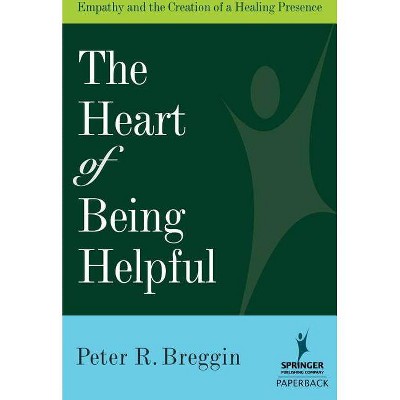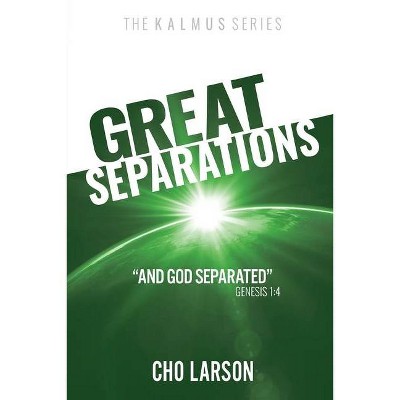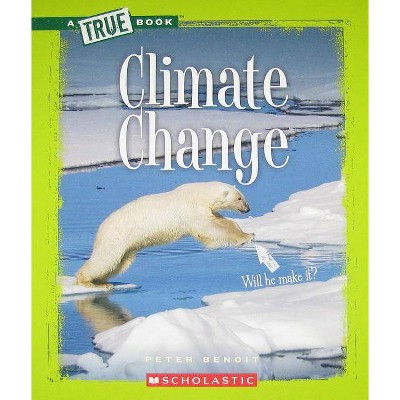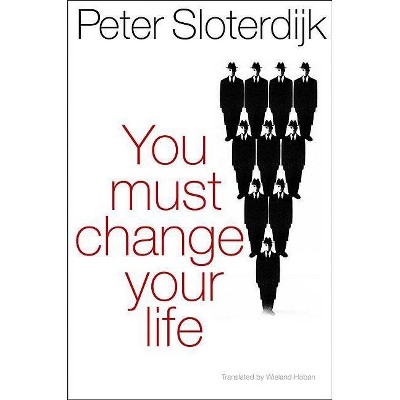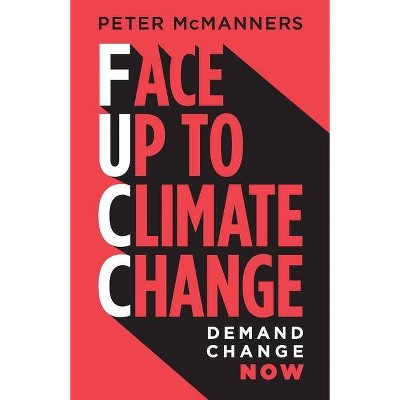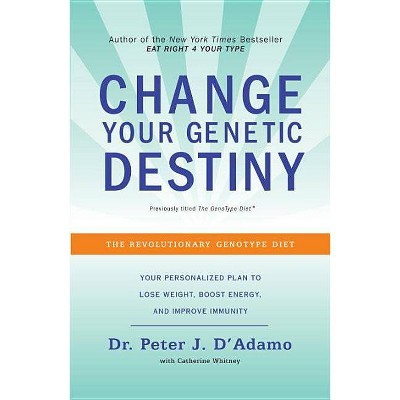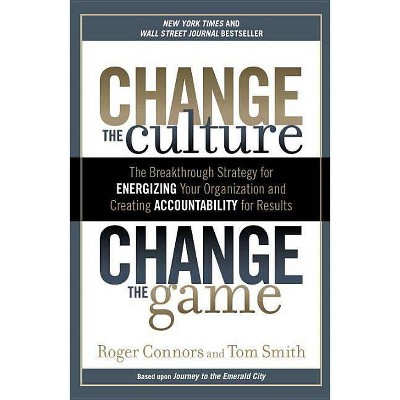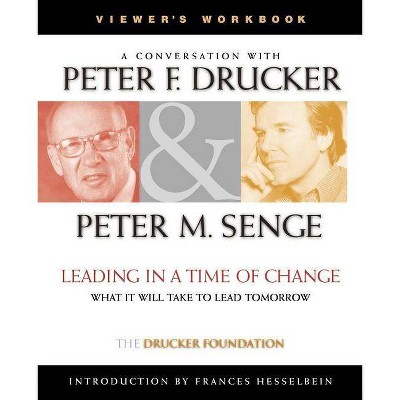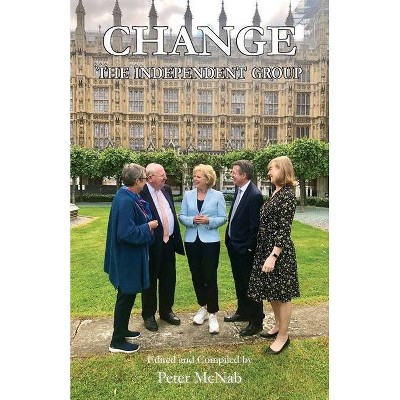Being the Change - by Peter Kalmus (Paperback)
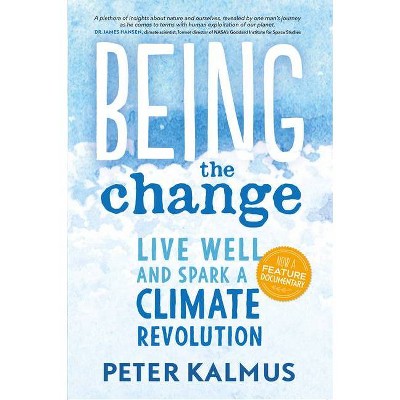
Similar Products
Products of same category from the store
AllProduct info
<p/><br></br><p><b> About the Book </b></p></br></br><p> How a climate scientist and suburban father cut his climate impact down to one tenth the US average and became happier because of it. <i> Being the Change </i> merges science, spirituality, and practical knowledge to offer a deeply optimistic message: living without fossil fuels is not only possible, it can be better. </p><p/><br></br><p><b> Book Synopsis </b></p></br></br><p><b> Life on 1/10th the fossil fuels turns out to be awesome. </b></p><p> We all want to be happy. Yet as we consume ever more in a frantic bid for happiness, global warming worsens. </p><p> Alarmed by drastic changes now occurring in the Earth's climate systems, the author, a climate scientist and suburban father of two, embarked on a journey to change his life and the world. He began by bicycling, growing food, meditating, and making other simple, fulfilling changes. Ultimately, he slashed his climate impact to under a tenth of the US average and became happier in the process. </p><p><i> Being the Change </i> explores the connections between our individual daily actions and our collective predicament. It merges science, spirituality, and practical action to develop a satisfying and appropriate response to global warming. </p><p> Part one exposes our interconnected predicament: overpopulation, global warming, industrial agriculture, growth-addicted economics, a sold-out political system, and a mindset of separation from nature. It also includes a readable but authoritative overview of climate science. Part two offers a response at once obvious and unprecedented: mindfully opting out of this broken system and aligning our daily lives with the biosphere. </p><p> The core message is deeply optimistic: living without fossil fuels is not only possible, it can be better. </p><p><b> Peter Kalmus </b> is an atmospheric scientist at Caltech / Jet Propulsion Laboratory with a Ph.D. in physics from Columbia University. He lives in suburban Altadena, California with his wife and two children on 1/10th the fossil fuels of the average American. Peter speaks purely on his own behalf, not on behalf of NASA or Jet Propulsion Laboratory. </p><p/><br></br><p><b> From the Back Cover </b></p></br></br><p> Life on 1/10th the fossil fuels turns out to be awesome </p><p><i> A powerful reminder that it is possible -- and joyful -- to move away from fossil fuels, even in a society still in the throes of addiction. <br/></i> BILL MCKIBBEN, author, <i> Eaarth: Making a Life on a Tough New Planet </i></p><p><i> A vital message about how we can indeed be the change we need to see in the world if we are to avert a climate catastrophe. </i><br/> MICHAEL E. MANN, Distinguished Professor of Atmospheric Science, Penn State University, co-author, <i> The Madhouse Effect </i></p><p> WE ALL WANT TO BE HAPPY. Yet as we consume ever more in a frantic bid for happiness, global warming worsens. </p><p> Alarmed by drastic changes in the Earth's climate systems, the author, a climate scientist and suburban father of two, embarked on a journey to change his life and the world. He began by bicycling, growing food, meditating, and making other simple, fulfilling changes. Ultimately, he slashed his climate impact to under a tenth of the US average and became happier in the process. </p><p><i> Being the Change </i> explores the connections between our individual daily actions and our collective predicament. It merges science, spirituality, and practical action to develop a satisfying and appropriate response to global warming. </p><p> The core message is deeply optimistic: a world without fossil fuels is not only possible -- it will be better. </p><p><i> Kalmus walks the walk for his kids, for the land, for our future --and he can help you do it too. </i><br/> KELLY COYNE and ERIK KNUTZEN, authors, <i> The Urban Homestead </i> and <i> Making It </i></p><p><i> What anyone can do to reduce climate impact -- and live a better life in the process. </i><br/> RICHARD HEINBERG, Senior Fellow, Post Carbon Institute, and author, <i> The End of Growth </i></p><p> PETER KALMUS is an atmospheric scientist at NASA's Jet Propulsion Laboratory with a Ph.D. in physics from Columbia University. He lives in suburban Altadena, California with his wife and two children on 1/10th the fossil fuels of the average American. </p><p/><br></br><p><b> Review Quotes </b></p></br></br><br><p><em>Being the Change</em> is a book I desperately needed to read. The tone of authenticity kept me reading eagerly till the end. It is refreshing and empowering to read about real-life solutions, rather than the guilt-ridden, doom-and-gloom tales that dominate much of the environmental movement. Kalmus is positive, by contrast, bursting with practical strategies. He writes with joy, infectious curiosity, and a hopeful enthusiasm that's hard to resist. -- <em>Treehugger</em>, <b>Katherine Martinko</b>, June 2017</p> <p>Kalmus, an atmospheric scientist at NASA Jet Propulsion Laboratory, is strongly convinced that living without fossil fuels is not only possible but better for both the planet and the individual. The author draws on science, practical action, and spiritual examination to make the case that by reducing our carbon footprint, people can slow global warming and the ensuing civil unrest. Suggestions include biking, growing our own food, using a clothesline and solar-heated water, and turning off the lights when they're not in use. Kalmus encourages meditation to provide satisfaction in the moment rather than the need for more, presenting valuable tips for opting out of what he deems a destructive system. <strong>VERDICT </strong>Kalmus' straightforward and necessary steps toward ameliorating the challenges of global warming will be welcomed by a wide readership. Highly recommended. -- <em>Library Journal</em> <strong>Starred Review</strong>, August 2017</p> <p>Addressing both climate change helplessness and the meaning of everyday life, this book posits a personal, positive approach to environmental mindfulness<em>. Being the Change</em> approaches climate change from a fundamentally different perspective. It repudiates the idea that individuals can do nothing about climate change and encourages mindful transition to a low-energy lifestyle--not as a sacrifice to stop a threat, but as a means of embracing a richer life. This emphasis on the bright side of climate change mitigation has a good chance of resonating with ambivalent audiences...The book offers an unusually comprehensive and scientifically satisfying explanation of how climate change happens. ...That it is able to do so in a straightforward way is a significant feat. ... Likely to be popular, <em>Being the Change</em> is a worthy contender for display space in public libraries. <em>--Foreword Reviews</em>, <strong>5 stars</strong>, <strong>Anna Call, </strong> September/October 2017</p><br><br><p><em>"Being the Change</em> is a book I desperately needed to read.... The tone of authenticity kept me reading eagerly till the end. It is refreshing and empowering to read about real-life solutions, rather than the guilt-ridden, doom-and-gloom tales that dominate much of the environmental movement. Kalmus is positive, by contrast, bursting with practical strategies. He writes with joy, infectious curiosity, and a hopeful enthusiasm that's hard to resist." -- <em>Treehugger</em>, Katherine Martinko, June 2017</p> <p>"Kalmus, an atmospheric scientist at NASA Jet Propulsion Laboratory, is strongly convinced that living without fossil fuels is not only possible but better for both the planet and the individual. The author draws on science, practical action, and spiritual examination to make the case that by reducing our carbon footprint, people can slow global warming and the ensuing civil unrest. Suggestions include biking, growing our own food, using a clothesline and solar-heated water, and turning off the lights when they're not in use. Kalmus encourages meditation to provide satisfaction in the moment rather than the need for more, presenting valuable tips for opting out of what he deems a destructive system. <strong>VERDICT </strong>Kalmus' straightforward and necessary steps toward ameliorating the challenges of global warming will be welcomed by a wide readership. Highly recommended." -- <em>Library Journal</em> <strong>Starred Review</strong>, August 2017</p><br><br>This book has shown me that it is worthwhile to keep fighting, and that the littlest actions can be powerful. Written by Peter Kalmus, an atmospheric scientist from Altadena, California, <i>Being the Change</i> is the story of his family's transition to life on one-tenth of the fossil fuels used by the average American family. The story is remarkable.--Katherine Martinko, Treehugger, June 2017<p>Library Journal Starred Review, August 2017<p>Kalmus, an atmospheric scientist at NASA Jet Propulsion Laboratory, is strongly convinced that living without fossil fuels is not only possible but better for both the planet and the individual. The author draws on science, practical action, and spiritual examination to make the case that by reducing our carbon footprint, people can slow global warming and the ensuing civil unrest. Suggestions include biking, growing our own food, using a clothesline and solar-heated water, and turning off the lights when they're not in use. Kalmus encourages meditation to provide satisfaction in the moment rather than the need for more, presenting valuable tips for opting out of what he deems a destructive system. <p><b>VERDICT Kalmus's straightforward and necessary steps toward ameliorating the challenges of global warming will be welcomed by a wide readership. Highly recommended.<br><p/><br></br><p><b> About the Author </b></p></br></br><p><strong> Peter Kalmus </strong> is a climate scientist at NASA's Jet Propulsion Laboratory with a Ph.D. in physics from Columbia University. At work he studies the physics of clouds in a changing climate, and at home he explores how we can address climate change while living happier, more connected lives. He lives in Altadena, California, a suburb of Los Angeles, with his wife and two children on 1/10th the fossil fuels of the American average. He enjoys orcharding, beekeeping, and backpacking. Peter speaks purely on his own behalf, not on behalf of NASA or Jet Propulsion Laboratory </p>
Price History
Cheapest price in the interval: 12.79 on November 8, 2021
Most expensive price in the interval: 21.99 on May 23, 2021
Price Archive shows prices from various stores, lets you see history and find the cheapest. There is no actual sale on the website. For all support, inquiry and suggestion messages communication@pricearchive.us
